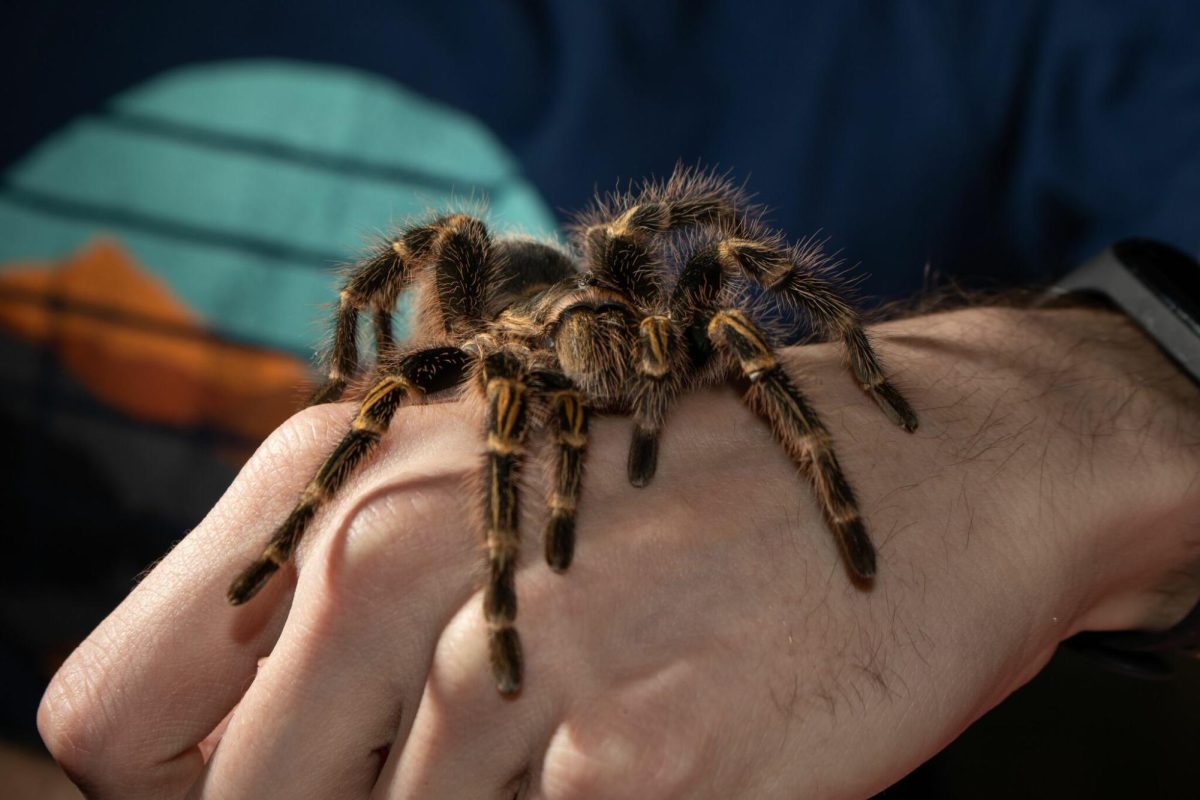Fear is something that everyone experiences throughout their life. Everyone has a biggest fear or something that freaks them out the most.
For some people, it may be spiders or others being buried alive. While some fears are more common and socially accepted, others with uncommon fears face higher challenges, like embarrassment.
Certain fears that seem weird to us may be a real struggle for others. While a lot of people have Trypophobia, or the fear of a pattern of holes, others struggle with Ablutophobia, or the fear of bathing, and it’s not as easy for them.
While someone with a common fear is “accepted,” others with uncommon fears tend to be “unaccepted.” They face embarrassment and mocking. Often times, people will tell them that they are being dramatic or even looking for attention.
“One of my biggest fears is public bathroom handsoap,” Keona Rommerman said. “I do not know why it freaks me out so much, maybe it is just the thought of all the germs.”
Rommerman often gets a wide variety of reactions because of this fear. Some people find it weird and tell her to just get over it, while others completely agree and feel the same way.
“I also hate the smell,” Rommerman said.
While Rommerman’s fear is seen as weird or unique, Lauren Peterson’s fear is seen as common and genuine.
“Jumpscares really freak me out,” Lauren Peterson said.“I think it might just be because I get scared so easily or always stay on high alert.”
Peterson gets more valid responses to her fear as it is seen in more people. Her fear seems more literal and less “made up.”
This seems unfair and does not make much sense. If Peterson and Rommerman’s fears both make them feel the same type of emotions and bad energy, then they should both be valid fears. Just because one sounds odd or you don’t have the same fear does not mean that it doesn’t make others feel that uneasy feeling.
As someone who struggles with emetophobia, or the fear of vomiting or seeing vomit, it is an everyday struggle. My fear is seen as silly or even made up, but it is something that I genuinely struggle to deal with every day.
It is even worse because people get sick all the time. Seeing someone sick, or even being sick myself, sends me into a state of panic and shoots up my anxiety. While also having stomach issues that make me sick constantly, it makes the fear more intense.
I’m often told that my fear is silly or that I’m just being overly dramatic. It is embarrassing to tell people about this fear, especially when I have not known them for very long.
While my fear is only common in 0.1 percent of the population, my friend Charlotte’s fear is common in 2.7-6.1 percent of the population.
“I have arachnophobia, which is the fear of spiders,” Charlotte Wiebach said. “While it is one of the most common fears, it still feels a little silly.”
While Wiebach has one of the most common fears and I have one of the least common, we both get the same stomach-churning and anxious feelings. She may feel silly being scared of small creatures but gets more support than when my fear is discussed.
Fear should not make people feel embarrassed or that they are just making something up. Anyone’s fear should be acceptable, and people should be able to talk about them.
Most fears come from bad experiences or traumatic events. People can not just pick their fears. A lot of people wish they could get over them or even feel ashamed of their fears.
If anything could help me get over my fear, I would do it in a heartbeat, and not just to be away from that horrible feeling, but also to get rid of the embarrassment that comes with it. Many others would agree with this statement.
Fear is fear, and there is nothing that we can do to stop it. While we can try to confront them and overrule the anxiety. At the end of the day, the fear is still there, quietly creeping around in our heads.
Fear is a response designed to keep us safe, it alerts us of potential threats around our environment. The spectrum of fear varies, and not everyone is going to be stuck with the same one.
Accepting the fear and finding ways to help deal with it is a big help. Being embarrassed of your fear will only make things worse and more than likely cause more stress. Uncommon fears are often more deep-seated than common fears.
Lots of uncommon fears come from certain events in a person’s life. Some events are traumatic, while others are just gross or weird.
“One of my biggest fears is portal potties because my friends pushed me over in one,” London Peterson said. “They were gross to begin with, and the fear of someone walking in or it getting tipped is the worst.”
While Peterson’s fear might not be as big as some or cause her to break down, it still freaks her out. People typically judge Peterson for this fear or laugh, but knowing the story as to why it freaks her out makes more sense.
Judging someone on their fear can make it one hundred times worse. It can cause overthinking and put them into situations trying to “get over the fear” that will only make things worse.
Everyone’s fear is genuine, and there is no such thing as a silly fear. People do not deserve to be belittled because of an uncommon fear.
“My biggest fear is being left out,” Harmony Willaims said. “I think it comes from friends I have had in the past.”
While Willaims’ fear is more common, some still call it silly. She meets a lot of people who also have this fear, but others look at her as if she’s “attention seeking” or “self-centered.”
“I do not understand why people have to judge others on fears we are all different and can not control that aspect of ourselves,” Williams said.
She started adapting to this fear when her old friends would leave her out or speak of things she was not a part of in front of her. It causes her to overthink and get the same type of sickening feeling in her stomach.
While Williams and I’s fears are wildly different, we can both agree that the judgment on our fears gets to us and makes matters worse. When someone supports our fears, it is easier to control it with their help and sympathy. When others put down our fears, it makes the situation harder to deal with and get in our heads.
While this may not be the same for everyone, a large part of the population also struggles with overthinking and obsessive thoughts. This can also help cause certain fears.
Fears can range from anything from a small state of panic to an anxiety attack. Fears that just cause small states of panic may not be as hard to deal with and a little easier to get over. While fears that cause an attack can be draining and a real challenge for others.
You never know how someone’s fear comes about and how it can affect them. Judging them based on an emotion is something that should not be typical. Just because you do not understand or feel the same fear does not mean you should judge someone else’s.
Empathy helps fear in so many different ways. Just being there for someone and listening to their issues with the fear can help them so much.
Although someone may not understand or even want to be in the conversation, just listen and support them, even if the fear does seem a little funny to you. To them, it is an everyday struggle, and helping them overcome it or just being there to comfort them will do wonders.
“I try to just comfort my friends and say reassuring things when they panic,” Wiebach said. “It is what I would want them to do for me.
Wiebach adds that friends help calm her down in an anxiety-filled situation and make her struggles a little easier.
I know that when I feel sick or someone else is, I like to be around my close friends and get their comfort or even just have them distract me. Just their presence helps calm me down and feel a little better.
Uncommon fears should not be seen as an embarrassment or like they are a joke. All fears are “acceptable” and shouldn’t be judged just because they sound weird to others. Not everyone is going to have the same fears and that is okay.
Fear will always be with us, no matter what it is. We can try to overcome it and do things to help calm it down, but judgment makes it harder. There is no need to judge others’ fears.
The embarrassment of uncommon fears shows the need for a more inclusive society. By building empathy and creating a more supportive environment, individuals can feel understood and overcome their journey.

